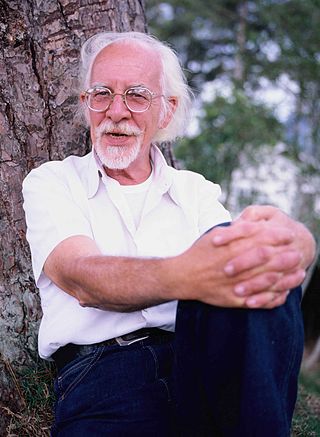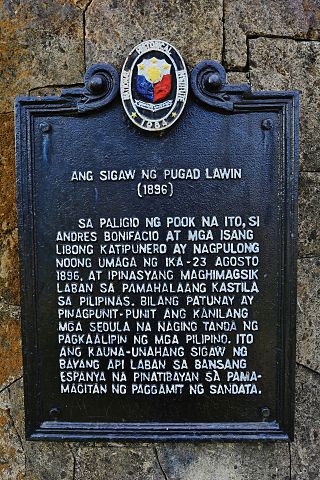Industrial and organizational psychology "focuses the lens of psychological science on a key aspect of human life, namely, their work lives. In general, the goals of I-O psychology are to better understand and optimize the effectiveness, health, and well-being of both individuals and organizations." It is an applied discipline within psychology and is an international profession. I-O psychology is also known as occupational psychology in the United Kingdom, organisational psychology in Australia and New Zealand, and work and organizational (WO) psychology throughout Europe and Brazil. Industrial, work, and organizational (IWO) psychology is the broader, more global term for the science and profession.
Organizational behavior or organisational behaviour is the: "study of human behavior in organizational settings, the interface between human behavior and the organization, and the organization itself". Organizational behavioral research can be categorized in at least three ways:
Filipino psychology, or Sikolohiyang Pilipino, in Filipino, is defined as the philosophical school and psychology rooted on the experience, ideas, and cultural orientation of the Filipinos. It was formalized in 1975 by the Pambansang Samahan sa Sikolohiyang Pilipino under the leadership of Virgilio Enriquez, who is regarded by many as the father of Filipino Psychology. Sikolohiyang Pilipino movement is a movement that created to address the colonial background in psychology in the country. It focuses on various themes such as identity and national consciousness, social awareness, and involvement, and it uses indigenous psychology to apply to various fields such as religion, mass media, and health.

Lauro "Larry" Zarate Alcala was a well-known editorial cartoonist and illustrator in the Philippines. In 2018, he was posthumously conferred the National Artist for Visual Arts title and the Grand Collar of the Order of National Artists.
Cultural competence, also known as intercultural competence, is a range of cognitive, affective, behavioural, and linguistic skills that lead to effective and appropriate communication with people of other cultures. Intercultural or cross-cultural education are terms used for the training to achieve cultural competence.

The first Philippine Assembly elections were held across the Philippines on July 30, 1907. The Philippine Organic Act of 1902 established a bicameral Philippine Legislature composed of the appointed Philippine Commission as the upper house and the elected Philippine Assembly as the lower house.

The Philippine Normal University is a public coeducational teacher education and research university in the Philippines. It was established in 1901 through Act No. 74 of the Philippine Commission "for the education of natives of the Islands in the science of teaching". It has campuses in Manila, North Luzon, South Luzon, Visayas, and Mindanao. Pursuant to Republic Act No. 9647, it is the country's National Center for Teacher Education.

Chronemics is an anthropological, philosophical, and linguistic subdiscipline that describes how time is perceived, coded, and communicated across a given culture. It is one of several subcategories to emerge from the study of nonverbal communication. According to the Encyclopedia of Special Education, "Chronemics includes time orientation, understanding and organisation, the use of and reaction to time pressures, the innate and learned awareness of time, by physically wearing or not wearing a watch, arriving, starting, and ending late or on time." A person's perception and values placed on time plays a considerable role in their communication process. The use of time can affect lifestyles, personal relationships, and work life. Across cultures, people usually have different time perceptions, and this can result in conflicts between individuals. Time perceptions include punctuality, interactions, and willingness to wait.

William Henry Scott was a historian of the Cordillera Central and pre-Hispanic Philippines.
Maria Nieves R. Confesor, popularly known as Nieves Confesor, is the former Executive Director of the Asian Institute of Management (AIM) TeaM Energy Center for Bridging Leadership.
The University of Santo Tomas College of Education, popularly known as "UST-Educ", is the teacher education, nutrition and dietetics, food technology, and library and information science school of the University of Santo Tomas, the oldest and the largest Catholic university in Manila, Philippines. It was established in 1926 at Intramuros, Manila.
Organizational behavior management (OBM) is a subdiscipline of applied behavior analysis (ABA), which is the application of behavior analytic principles and contingency management techniques to change behavior in organizational settings. Through these principles and assessment of behavior, OBM seeks to analyze and employ antecedent, influencing actions of an individual before the action occurs, and consequence, what happens as a result of someone's actions, interventions which influence behaviors linked to the mission and key objectives of the organization and its workers. Such interventions have proven effective through research in improving common organizational areas including employee productivity, delivery of feedback, safety, and overall morale of said organization.
Organizational conflict, or workplace conflict, is a state of discord caused by the actual or perceived opposition of needs, values and interests between people working together. Conflict takes many forms in organizations. There is the inevitable clash between formal authority and power and those individuals and groups affected. There are disputes over how revenues should be divided, how the work should be done, and how long and hard people should work. There are jurisdictional disagreements among individuals, departments, and between unions and management. There are subtler forms of conflict involving rivalries, jealousies, personality clashes, role definitions, and struggles for power and favor. There is also conflict within individuals – between competing needs and demands – to which individuals respond in different ways.
Job performance assesses whether a person performs a job well. Job performance, studied academically as part of industrial and organizational psychology, also forms a part of human resources management. Performance is an important criterion for organizational outcomes and success. John P. Campbell describes job performance as an individual-level variable, or something a single person does. This differentiates it from more encompassing constructs such as organizational performance or national performance, which are higher-level variables.

The Cry of Pugad Lawin was the beginning of the Philippine Revolution against the Spanish Empire.
Bernardo Malvar Villegas is a Filipino economist and writer best known for being one of the framers of the 1987 Philippine Constitution, for authoring a number of widely used Philippine economics textbooks, and for his role in the founding of two influential Philippine business organizations, the Center for Research and Communication and the Makati Business Club.
Filipino values are social constructs within Filipino culture which define that which is socially considered to be desirable. The Filipino value system describes "the commonly shared and traditionally established system of values underlying Filipino behavior" within the context of the larger Filipino cultural system. These relate to the unique assemblage of consistent ideologies, moral codes, ethical practices, etiquette and personal and cultural values that are promoted by Filipino society.
Although Westernization and globalization have influenced Filipinos who live in the metropolitan areas, the overall culture remains quite conservative in its sexual values. Filipino sexuality is affected by education received by Filipinos from schools, the media, the rise of the internet, religious teachings from their churches or other similar spiritual institutions, legal policies and laws, and the influence of urbanization or urbanized regions in the Philippines. There are provisions and policies in the constitution of the Philippines which promulgates that the sexual act should happen only within the framework of married life between a man and woman, because this personal human expression is solidly connected to the family unit and to society as a whole.

Filipino seamen, also referred to as Filipino seafarers or Filipino sailors, are seamen, sailors, or seafarers from the Philippines. Although, in general, the term "Filipino seamen" may include personnel from the Philippine Navy or the Philippine Marine Corps, it specifically refers to overseas Filipinos who are "sea-based migrant Filipino workers".
René B. Azurin is an author, political columnist, former business executive, and Professor of Management. He is most notable as a former member of the Philippines’ Constitutional Consultative Commission (ConCom) of 2005 which had been tasked by Philippine President Gloria Macapagal Arroyo with studying and proposing changes to the 1987 Philippine Constitution. He was elected co-Chairman of that body's Committee on Form of Government but dissented from the ConCom majority's eventual decision to propose the replacement of the Philippines’ American-style presidential system with a British-style parliamentary system. He wrote the dissenting Minority Report and participated actively in the public opposition to the proposed change.






